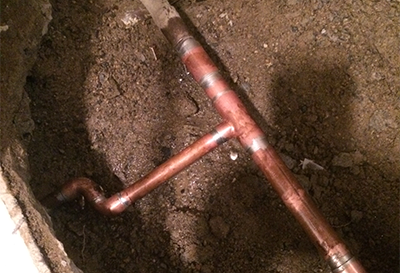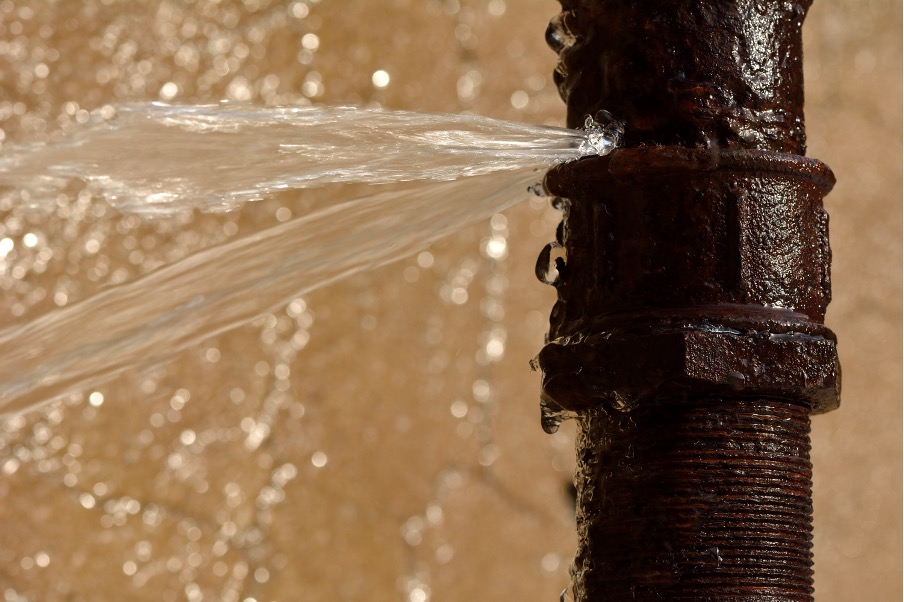Overview To Water Leakage Detection At Home
Overview To Water Leakage Detection At Home
Blog Article
Nearly everybody may have his or her own theory involving Detecting hidden plumbing leaks.

Early discovery of leaking water lines can alleviate a prospective catastrophe. Apart from conserving you money, it will decrease the aggravation and frustration. The moment you locate a leakage, calling your plumber for repairs is the most effective remedy. Some little water leakages may not be noticeable. Right here are some hacks that help if you can not discover it with your nude eyes.
1. Analyze the Water Meter
Checking it is a surefire method that helps you uncover leakages. If it relocates, that suggests a fast-moving leakage. This indicates you may have a slow leak that can even be below ground.
2. Check Water Usage
Assess your water expenses and track your water intake. As the one paying it, you must notice if there are any kind of discrepancies. If you detect sudden changes, regardless of your consumption being the same, it suggests that you have leakages in your plumbing system. Remember, your water expense ought to drop under the exact same range every month. A sudden spike in your bill suggests a fast-moving leakage.
A steady boost every month, even with the exact same practices, shows you have a slow-moving leak that's additionally gradually escalating. Call a plumber to extensively examine your residential property, particularly if you feel a warm area on your floor with piping below.
3. Do a Food Coloring Test
When it comes to water usage, 30% comes from commodes. If the color in some way infiltrates your bowl during that time without flushing, there's a leak in between the storage tank and dish.
4. Asses Exterior Lines
Don't fail to remember to examine your outside water lines also. Ought to water leak out of the connection, you have a loose rubber gasket. One small leakage can lose bunches of water as well as surge your water costs.
5. Inspect and also Evaluate the Situation
Home owners should make it a habit to examine under the sink counters and even inside closets for any kind of bad odor or mold growth. These 2 warnings show a leakage so prompt interest is required. Doing regular evaluations, even bi-annually, can conserve you from a major problem.
Extra notably, if you know your home is already old, keep a watchful eye on your heating units, pipes, pipelines and so on. Look for stainings and also damaging as the majority of appliances and pipelines have a life span. They will likewise naturally weaken because of deterioration. Do not wait for it to rise if you presume dripping water lines in your plumbing system. Call a professional plumber as soon as possible so you do not wind up with a horrible mess in your house.
Early detection of leaking water lines can minimize a prospective catastrophe. Some tiny water leakages may not be visible. Examining it is a guaranteed way that helps you uncover leakages. One tiny leakage can lose tons of water and also surge your water bill.
If you presume leaking water lines in your plumbing system, do not wait for it to intensify.
How to Know If Your Home Has a Hidden Leak
Water Meter Reveals Inexplicable Water Usage
If you’d like to test whether or not there’s a leak somewhere in your home, you can do this using your water meter. Here is how to conduct the test:
Don’t use any water in your home for at least 30 minutes; this also means not turning on faucets or water-using appliances.
Go outside, and check your water meter for activity.
If your water meter shows that there was activity, even though no one was using any water, this proves that there is a leak in your home.Visible Mold or Mildew Growth
Leaks behind walls create moist, dark environments that allow mold and mildew to grow and thrive. Eventually, you might see mold growth forming on the wall closest to a hidden leak.
If mold is growing in an area that receives a high amount of moisture, such as a bathroom, it may simply be an indication that better ventilation is needed. However, if you see mold growth on a wall or the ceiling in an area where you would not expect, you probably have a hidden leak.
Musty, Mildew Odor
Sometimes you might not be able to see the mold or mildew that is growing as a result of a leak. However, the smell can give the problem away just as easily. If you catch a whiff of something musty, there’s a good chance that old water is collecting somewhere in your home that you can’t see.
Stained/Warped Walls, Ceilings, or Floors
When your home soaks up water, a variety of red flags can become visible, including ceiling stains, bubbling drywall, warped walls, and sagging floors. While these issues can be caused by excess humidity, they can also be signs that a pipe or plumbing connection has started leaking behind your walls.
Inexplicably High Water Bill
After a while, you get a general sense for what your water bill should be. If you own a pool or sprinkler system, your bill will tend to be higher during summer. However, if you receive a water bill that seems especially high, and you can’t figure out what caused it, then you may have a hidden leak somewhere that’s increasing your bill.
https://www.plumbingjoint.com/blog/2019/july/how-to-know-if-your-home-has-a-hidden-leak/

I'm very inquisitive about Locating water leaks and I really hope you liked my piece. Are you aware of someone else who is inquisitive about the topic? Feel free to promote it. We truly appreciate reading our article about Detecting hidden plumbing leaks.
Report this page